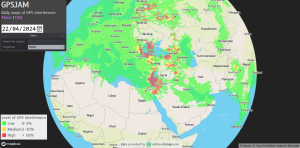5% of UK space workers joined industry via ‘outreach’
2nd Mar 2023
Only 5% of UK space workers joined because of outreach programs, yet it remains one of the most popular way of increasing space industry awareness. However, the skills gap demands wider recruitment efforts to fulfill short-term ambitions in space. This is why the Space Skills Alliance, a not-for-profit consultancy organisation, just released its latest report based off the 2020 Space Census, highlighting why people join the industry in the first place, to hopefully gain insight on how the UK can address the space skills gap.
The report is the fourth of its kind, and highlighted the lack of available information for people who choose to enter the space industry mid-career and showed what influenced participants the most in joining the sector.
UK space workers report
The 2020 Space Census was conducted by the Space Skills Alliance on behalf of the Space Growth Partnership’s Space Skills Advisory Panel, the UK Space Agency and UKspace. It was conducted from October to December 2020 and garnered 1,552 participants from more than 250 UK organisations – making up 5% of the UK space workforce.
Dr Heidi Thiemann, Director of the Space Skills Alliance, said:
“This is the first report to delve into what inspires people in the UK to join the space sector, but it also provides an insight on the actions we can take to improve the pipeline. We were fascinated to find two distinct groups – people who joined the sector because they like space and people who joined because they like solving interesting problems. This has implications for how the sector designs recruitment so that we can create pathways for everyone.”
Outreach has made lower impact
Addressing the skills gap can be achieved by several avenues: increasing awareness and advertising, outreach programs in schools and universities, reducing qualifications needed, making jobs more skill based, etc… However, often the most popular route is outreach programs.
Outreach is important, especially for long term goals, but the report shows only 5% of participants said school outreach influenced their choice to join the space sector. Outreach at university proved to be a little more successful, with 10% of people saying it influenced them, however, Space Skills said, “these students may already have had plans to enter the space sector”.
Further, space camps also had a small impact, with only 4% of respondents citing them as an influence. “This is likely because space camp attendees are typically already interested in space”, the report said. However, space camps in the UK have grown from one in 1989 to ten in 2022, proving its success particularly with females.
Interest in space, however, can be different between men and women. The report found women are more likely to be inspired by school or space camps, whereas men are more likely to be influenced by the internet. One of the biggest impacts, however, comes from historic events like the Apollo Program, or Tim Peake’s launch into space, depending on the participant’s age.
Mid- career changes
The two types of people who join the industry also tend to enter at different career points. According to the report, people who were interested in space tended to join the industry from a younger age, with 63% having joined by age 25. People who enjoyed complex work but joined the industry “later on” (still under the age of 25) accounted for 38% of participants.
However, there are also a large group of people who join later, but struggle to land work. For younger people looking to join, they can go to graduate programs, find educational resources, and join careers events. But as the Space Skills Alliance says, mid-career changes are not the focus of recruitment efforts, despite them making up more than half of the space sector:
“Though there are a range of resources about space sector careers, these are primarily aimed at young people, from school age through to recent graduates, and there is virtually nothing available for career changers. Google searches turn up virtually no articles, websites, or events for people who want to change careers and move into the space sector, but there is a wealth of information for those who want to leave disciplines like engineering to convert to finance, consulting, or law.”
The Space Skills Alliance hopes there will be more done about providing opportunities for career changers who wish to become UK space workers, such as being open to less to traditional career paths.







Thank you for your comment! It will be visible on the site after moderation.